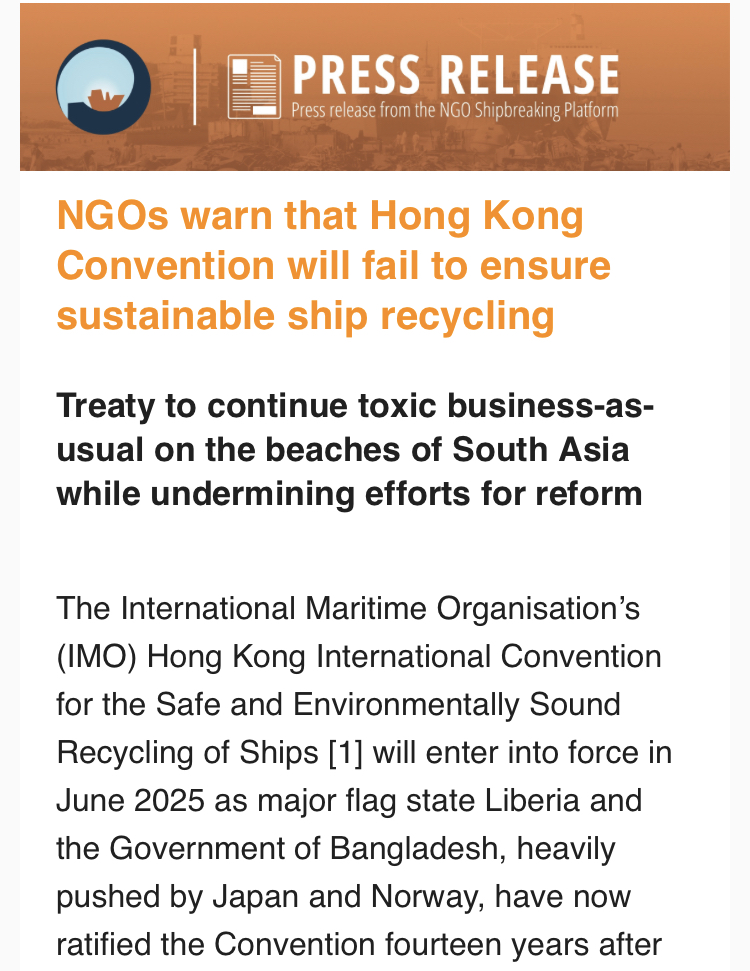
The upcoming entry into force of the Hong Kong International Convention for the Safe and Environmentally Sound Recycling of Ships by the International Maritime Organisation (IMO) in June 2025 has been met with concern from various non-governmental organizations (NGOs). Despite the ratification of the Convention by major flag state Liberia and the Government of Bangladesh, critics argue that the Convention's requirements fail to ensure ethical, safe, and environmentally sound ship recycling practices. In a collective voice, NGOs emphasize that the Convention risks perpetuating dangerous and polluting shipbreaking practices while undermining existing reform efforts in the industry.
Highlighting the flaws of the Hong Kong Convention, the NGOs draw attention to its failure to establish robust environmental and social standards for the management of toxic substances present in end-of-life ships. In comparison to the Basel Convention and the more recent EU Ship Recycling Regulation, the Hong Kong Convention falls short by lacking stringent requirements and endorsing the practice of beaching, which has long been associated with pollution and health hazards for workers and local communities.
Various entities, including NGOs, the UN Special Rapporteur on Toxics and Human Rights, the Centre for International Environmental Law, and the European Parliament, have highlighted the critical weaknesses in the Hong Kong Convention's standards and enforcement mechanisms. Additionally, the majority of the countries party to the UNEP Basel Convention, which controls the global trade of hazardous wastes, have found the Convention to be insufficient in preventing the dumping of toxic ships in developing countries.
Furthermore, the responsibility for enforcing the Convention is primarily placed on the end-of-life vessel's flag state and the recycling state, which raises concerns regarding independent control mechanisms. The lack of independent oversight leaves the enforcement in the hands of flag states with a poor track record of implementing international maritime law, potentially perpetuating unsafe practices.
NGOs stress the urgent need for changes to the Hong Kong Convention to align with expectations of environmental justice, labor rights, and circular economy objectives. They call on the European Union and responsible ship owners to prevent greenwashing of the current practices and advocate for more sustainable alternatives to ship recycling.
As the Hong Kong Convention prepares to enter into force, the global community must address the existing loopholes, internalize the costs of sustainable ship recycling within the shipping sector, and support the development of capacity that adheres to industry best practices. By doing so, the industry can protect the well-being of workers, local communities, and fragile ecosystems, fulfilling the intent of the Basel Convention and preventing the Global South from becoming a dumping ground for the world's wealthiest industries and nations.
